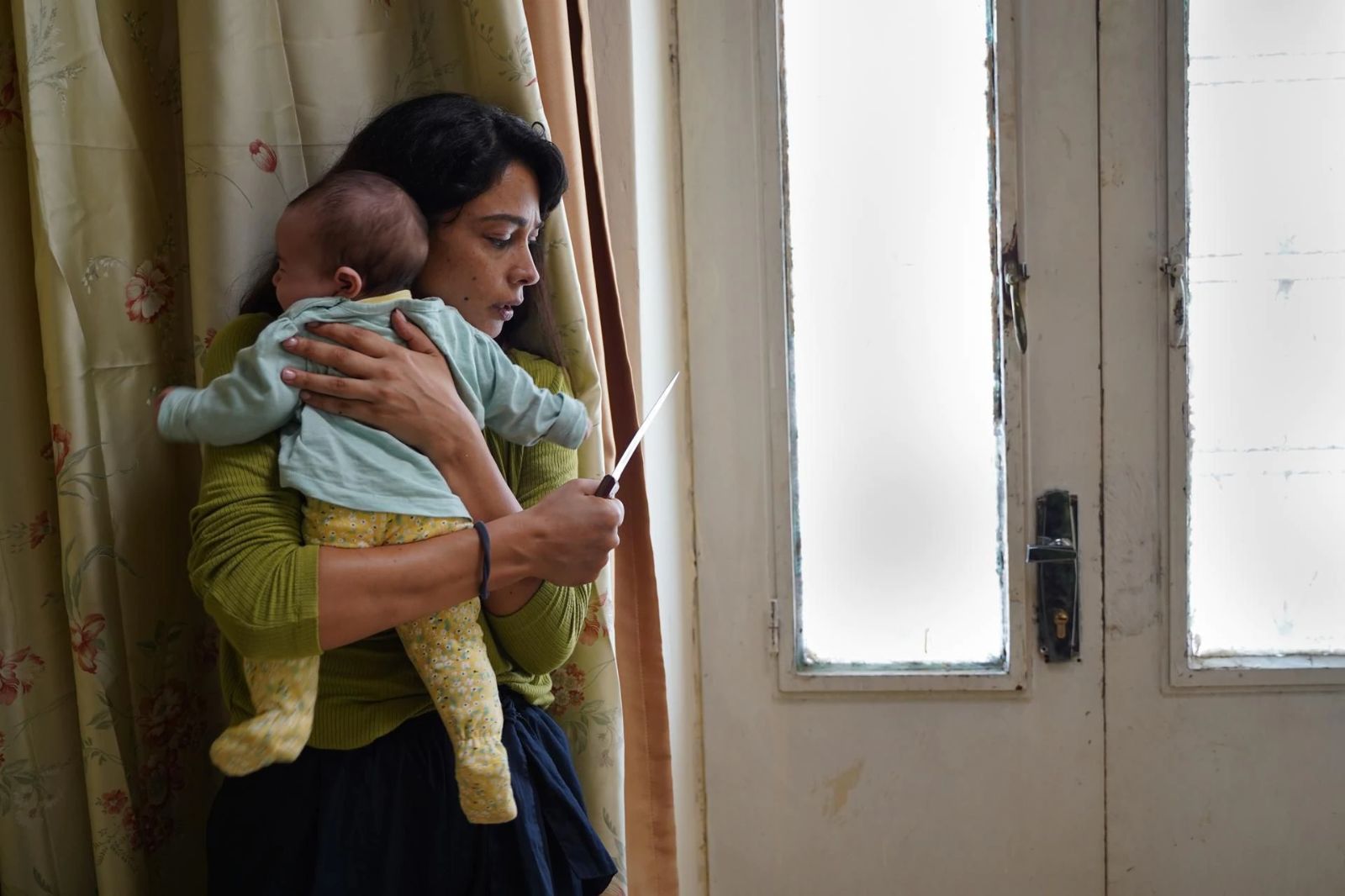Long live the socially minded political thriller! Thanks to filmmaker Hany Abu-Assad, this long-underserved sub-genre––once perfected by directors like Hitchcock, Pakula, and Weir––feels briefly resurrected thanks to his new picture Huda’s Salon. Set in the West Bank and based on true events, the film concerns Palestinian housewife Reem (Maisa Abd Elhadi) and the circumstances that are set in motion after a fateful trip to a local salon run by a woman named Huda (Manal Awad).
The opening scene is a beautifully constructed short film all its own, revealing a snappy spy narrative involving Israeli occupiers and Palestinian resisters. On one side sits Huda, on the other sits her interrogator Hasan (a great Ali Suliman). When asked how it is she decides which women to recruit and blackmail into espionage, she replies, “I choose the girls whose husbands are assholes.”
All three leads are perfectly calibrated here. Each character represents a common spy movie archetype and each one subverts expectations at different points throughout the film. Also writing the screenplay, Abu-Assad strips down his narrative to a prolonged interrogation cut against a tense, slow-building domestic inflection point. Huda’s Salon recalls Hollywood mysteries from the 1940s in both its brisk pace and disarmingly simple style, resulting in a sparse, intelligent thriller. The work of Christian Petzold (Pheonix, Transit) serves as a recent, worthy comp.
The setting, of course, is essential. Over the opening credits––against B-roll of everyday life in the West Bank––we are reminded of the Israeli occupation since 1967 and the imposed restrictions on the Palestinian people who live there. These politically motivated limitations combined with misogynistic cultural norms add up to Reem’s central conflict. In another situation, escape might be possible. But not here. Not with her suspicious husband. And not with their newborn baby. Maisa Abd Elhadi makes the very most out of her big, expressive eyes, often conveying the weight of the world without having to utter a word. Meanwhile, Suliman and Awad spar verbally for most of the 90-minute runtime. The two challenge the validity (and morality) of each other’s motivations while the life of Reem, and the lives of many young women like her, hang in the balance.
That the film takes place in the present day also adds a considerable amount of urgency. The problems of these three little people do amount to a hill of beans in this crazy world. Not unlike the film in reference, Casablanca, while the politics dictate much of the plot they do not distract from the entertainment. Huda’s Salon is riveting above all else. There is never a moment where a message stalls the forward motion of the larger story. What’s more, Abu-Assad organically contextualizes the position of his three lead characters and the war-torn decisions that have brought them here; Suliman has a particularly heartbreaking monologue in the second act.
There is certainly criticism that can be levied at the third act and an incompleteness that feels perhaps counterintuitive to the overall tone of the picture. Yet is it not better to leave with more to discuss after the credits roll? This is a good time at the movies.
Huda’s Salon screened at the Toronto International Film Festival.

